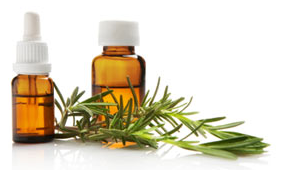How Does Aromatherapy Work?

To begin answering the question, how does aromatherapy work?, consider how you use and depend on each of your senses every day - hearing, sight, taste, touch and smell.
While your sense of smell is often at the end of the list, it plays a vital role in wellness and daily living.
Research shows that people who have lost their sense of smell are at much higher risk of mood disorders and psychological conditions, such as depression, anxiety and paranoia. The olfactory system, which is the sensory system for smell, is highly attuned. Scientists believe that humans can differentiate between 10,000 and 100,000 different smells - and remember each and every one of them.
Your sense of smell is strongly linked to your memories and subconscious. A particular smell can trigger a memory from many years in the past. Early civilizations realized the importance of the sense of smell.
The term, aromatherapy, wasn't used until the end of the 1920s, but thousands of years earlier the ancient Egyptians, Chinese, Greeks, and Romans used their understanding of aromatic flowers and herb to treat all sorts of ailments.
Today aromatherapy is used by many to help relieve the symptoms of many physical, mental, and emotional problems. Scientists have found that the reaction between aromatherapy's essential oils and and the body's chemical compounds can produce a number of positive effects. These include:
- Calming
- Sedating
- Stimulating
- Energizing
- Pain-relieving
- Anti-viral
- Anti-fungal
- Anti-inflammatory
- Diuretic
So how does aromatherapy work? The properties of essential oils are thought to help restore your body to a state of healthy balance - both physically and emotionally.
Some scientists and healthcare professionals find aromatherapy oils beneficial and a complement to traditional medicine. While others in the medical community do not believe that aromatherapy produces health benefits. As with any holistic method, perceptions and results vary by the individual. Therefore, consult with your doctor before starting aromatherapy.
Aromatherapy may be used by inhaling or through topical application. When you inhale the scent of a particular essential oil, it is immediately transported through your olfactory system directly to the limbic system in your brain. The limbic system controls your moods, emotions, stress levels, and memories. It also impacts your heart rate, blood pressure, breathing, and hormone balance.
When the scent reaches your brain, it has an immediate effect on both the alpha (relaxing) and beta (stimulating) brainwaves.
So, for example, if you've inhaled lavender aromatherapy oil, then your alpha brain waves will be affected, and you'll begin to feel calmer and more relaxed.
If you've used a more stimulating essential oil, such as lemon or spearmint, then you are likely to feel more alert and invigorated. The same effect can be obtained by using essential aromatherapy oils in either a massage,or in a warm bath.
How does aromatherapy work when essential oils are applied topically? The undiluted essential oils are first blended with milder oils (sometimes called "carrier" oils) such as almond, peach, apricot, jojoba, sunflower, grape-seed, or wheat grass oil.
They are then used in massage and naturally are absorbed through the skin to produce the same type of results as inhalation methods.
For more information, click on this link: guidelines for using essential oils.
Related Info - How Does Aromatherapy Work?
Effects of Aromatherapy
Aromatherapy Benefits
Aromatherapy Guide
How To Sleep Better
Share Sleep Tips Do you have a great tip to share with others who are struggling with sleep? What works for you might help someone else. |



